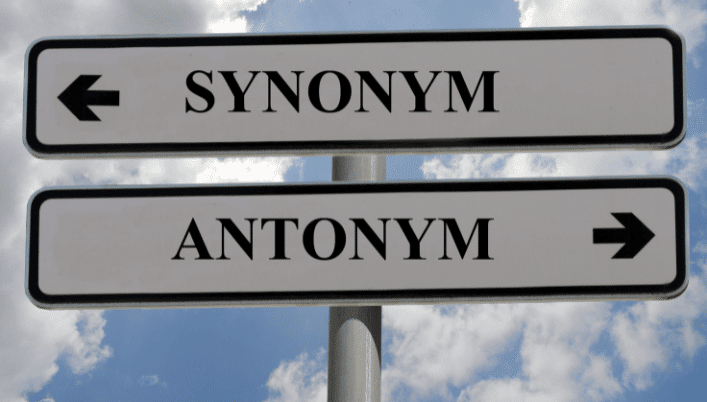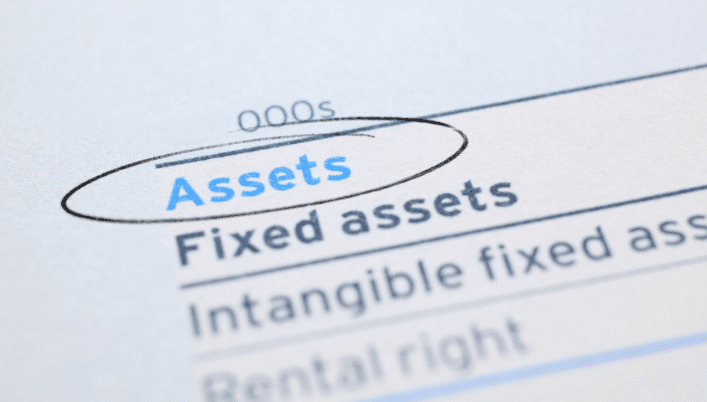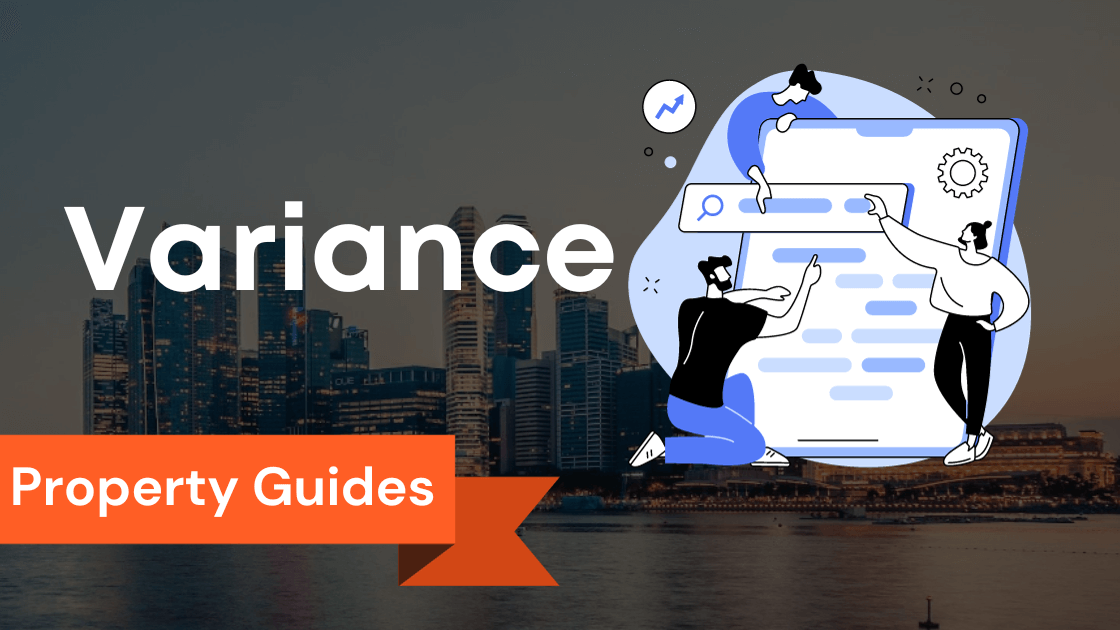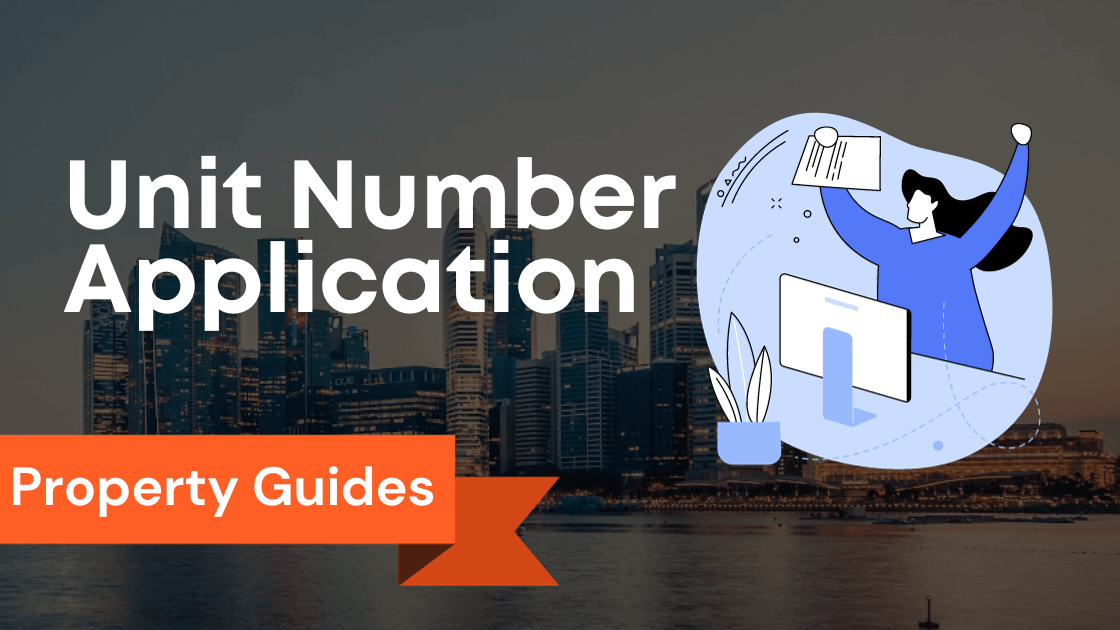What does Unencumbered Mean?

Definition of Unencumbered
The word “unencumbered” is an adjective that means not burdened or impeded by anything.
It refers to something free from any hindrance, obstruction, or restriction.
When something is unencumbered, it is clear of any obstacles or liabilities that could impede its progress or use.
Unencumbered in Singapore
In the context of Singapore, the term “unencumbered” can be used to describe various aspects.
For example, in real estate, “unencumbered property” refers to a property that is free from any liens, mortgages, or other legal claims.
Similarly, “unencumbered assets” denote assets that are not bound by any liabilities or debts.
Unencumbered assets or property are highly valued in Singapore, as they provide greater flexibility and security.
In the real estate market, unencumbered properties are often seen as more attractive to buyers and investors, as they offer a clean title and fewer potential complications.
Examples of Unencumbered
Unencumbered can also be used in various other contexts.
For example, a person may have unencumbered finances, meaning they have no outstanding debts or financial burdens.
In the online world, unencumbered files or data refer to digital content that is not restricted or limited by any copyright or licensing restrictions.
In general, the term unencumbered implies freedom and flexibility.
It suggests a state of being unrestricted and unburdened, allowing for smoother operations and greater opportunities.
In Singapore, the concept of unencumbered is particularly important due to its emphasis on efficiency and transparency.
Whether it is unencumbered property, assets, or financials, the ability to operate with freedom and clarity is highly valued in the country’s business and legal landscape.
http://www.youtube.com/watch?v=Oan2vPV4e9Y
Overall, the term unencumbered carries a positive connotation, representing a state of freedom, clarity, and ease.
It signifies the absence of constraints or obstacles and suggests a more streamlined and successful journey.
Key Takeaways
- Definition of Unencumbered: Unencumbered means not burdened or impeded by anything, signifying freedom from obstacles and liabilities.
- Unencumbered in Singapore Real Estate: “Unencumbered property” refers to real estate free from liens, mortgages, or legal claims, making it attractive to buyers and investors.
- Unencumbered Assets: Unencumbered assets in Singapore are valuable as they are not bound by liabilities or debts, providing flexibility and security.
- Examples of Unencumbered: It can apply to finances without outstanding debts, unencumbered files without copyright restrictions, and more.
- Positive Connotation: “Unencumbered” conveys freedom, clarity, and ease, suggesting a streamlined and successful journey.
- Using “Unencumbered” in Sentences: Correct pronunciation and usage tips for the word “unencumbered.”
- Synonyms and Antonyms: Synonyms like “also” and “source” and antonyms like “debt” and “mortgage” explained.
- Unencumbered vs. Encumbered: Unencumbered assets are free from restrictions, while encumbered assets have legal claims or liens attached.
- Personal Unencumbered Accounts: In Singapore, individuals can have personal unencumbered accounts, free from legal judgments, simplifying transactions, and enhancing credibility.
- Opening a Personal Unencumbered Account: Steps to open a personal unencumbered account, including choosing a bank and gathering required documentation.
How to Use Unencumbered in a Sentence

When it comes to using the word “unencumbered” correctly in a sentence, there are a few tips to keep in mind.
Here are some guidelines to help you use this word effectively:
Tips for Using Unencumbered Correctly
- Pronunciation: The correct pronunciation of “unencumbered” is un-in-KUHM-berd. Pay attention to the stress on the second syllable and make sure to pronounce it.
- Work: You can use “unencumbered” in the context of work to describe a situation where someone is free from any burdens or hindrances. For example, “He approached the project with an unencumbered mind, allowing him to think creatively.”
- Find: In situations where you have discovered something free from any restrictions or limitations, you can use “unencumbered.” For instance, “They were thrilled to find an unencumbered piece of land for their new business venture.”
- Title search: When discussing property or real estate, the term “unencumbered” can be used in a title search. This refers to a search conducted to ensure that a property is free from any liens or legal claims. For example, “Before purchasing the house, they conducted a title search to confirm that it was unencumbered.”
- Title company: If you are dealing with real estate transactions, you might come across the term “title company,” which is responsible for conducting title searches and ensuring that properties are unencumbered.
- Item title: Another way to use “unencumbered” is when referring to the title or ownership of an item. For instance, “With the appropriate paperwork, they were able to prove that the car was unencumbered by any outstanding loans.”
Common Mistakes to Avoid
- Definition of unencumbered: One common mistake is misinterpreting the definition of “unencumbered.” Remember that it means “not burdened or impeded by anything” and does not imply an opinion or problem.
- Liens and encumbered property: Avoid confusing “unencumbered” with “encumbered” when discussing real estate. “Encumbered property” refers to a property that has outstanding liens or legal claims, while “unencumbered property” is free from such burdens.
- Undiscovered tax lien: When using “unencumbered” in the context of real estate, ensure that you have thoroughly searched for any undiscovered tax liens that may encumber the property.
Examples of Unencumbered in a Sentence
To further understand how to use “unencumbered” in a sentence, here are some examples:
- “She decided to take a break and spend a moment of her life unencumbered by responsibilities.”
- “The examples provided in the presentation expressed the importance of unencumbered creativity.”
- “The title search revealed that there was no legal claim on the property, making it unencumbered.”
- “They decided to pursue a legal case to defend their fundamental claims and ensure an unencumbered future.”
- “His argument was based on the underlying claim that the property was unencumbered by any legal obligations.”
http://www.youtube.com/watch?v=7t6N55Ysza0
By keeping these tips in mind, you can confidently use “unencumbered” in various contexts and make sure you are conveying the intended meaning in your sentences.
Synonyms and Antonyms of Unencumbered

When it comes to the word “unencumbered,” it is helpful to understand its synonyms and antonyms.
By exploring these different terms, you can gain a deeper understanding of the concept.
Here are some synonyms and antonyms of unencumbered in the context of Singapore:
Synonyms of Unencumbered
- Source: In the Singapore context, source refers to assets or funds that are available without any restrictions or liabilities. These assets can be utilized freely for various purposes.
- Also: Another term that can be used interchangeably with unencumbered is “also.” It signifies that the asset or balance being referred to is not burdened by any restrictions or claims.
- Unencumbered Balance: This term refers to the amount of funds or assets that are available without any hindrances or liabilities. It represents the remaining balance after deducting any encumbrances.
- Asset with Encumbrances: On the other hand, an asset with encumbrances refers to an asset that has certain restrictions or liabilities attached to it. This is the opposite of an unencumbered asset.
- High-Value Assets: High-value assets are valuable possessions or investments that are free from any encumbrances or restrictions. These assets hold significant worth without being burdened by liabilities.
Antonyms of Unencumbered
- Debt: Debt is a direct antonym of unencumbered. It refers to an amount of money borrowed from a creditor that is owed and needs to be paid back.
- Mortgage: In Singapore, a mortgage refers to a loan taken out to purchase property or real estate. It is a form of encumbrance as it creates a legal claim on the property until the loan is repaid.
- Creditor Claims: Creditor claims represent the legal rights given to creditors to collect debts owed to them. These claims can restrict the free use of assets.
- Loan: A loan is a sum of money borrowed from a lender that needs to be repaid, typically with interest. It is a form of debt and can encumber assets or finances.
- Remaining Loan Balance: The remaining loan balance is the amount of money that a borrower owes on a loan after making payments over time. It represents the outstanding debt and can limit financial freedom.
Unencumbered vs. Encumbered in a Singapore Context
In Singapore, the terms unencumbered and encumbered play a significant role in various contexts, such as property ownership and financial transactions.
Unencumbered assets refer to those that are free from any legal or financial restrictions.
These assets can be readily used, sold, or transferred without any hindrance.
On the other hand, encumbered assets are those with legal or financial claims attached to them, such as mortgages or liens.
These claims restrict the free use or transfer of the assets.
When acquiring debt in Singapore, it is important to consider the impact on your financial freedom.
Taking on a loan or other forms of debt can encumber your assets, making it essential to carefully evaluate the terms and conditions.
Additionally, when dealing with collateralized debt, unencumbered assets play a crucial role.
An unencumbered asset can be used as collateral without any existing legal claims or restrictions.
Understanding the distinction between unencumbered and encumbered assets in the Singapore context is essential for sound financial planning and decision-making.
In conclusion, in Singapore, unencumbered assets are those without any legal or financial restrictions, while encumbered assets have claims or liabilities attached to them.
By grasping the significance of these terms, individuals can make informed financial choices and protect their assets.
Personal Unencumbered Accounts in Singapore

What is a Personal Unencumbered Account?
In Singapore, a personal unencumbered account refers to an individual’s account that is free from any legal or financial restrictions.
These accounts are typically used for various purposes, such as managing personal finances, receiving payments, or making transactions.
The term “unencumbered” signifies that the account is not burdened by any legal judgments or underlying judgments that could affect the individual’s financial freedom.
Benefits of Having a Personal Unencumbered Account
Having a personal unencumbered account in Singapore comes with several benefits, especially when it comes to financial transactions and credibility.
Here are some key advantages:
- Ease of Transactions: With a personal unencumbered account, individuals can freely receive payments and make transactions without any restrictions. This is particularly useful for freelancers, small business owners, or individuals who receive payments from various sources.
- Credibility with Publishers and Lenders: Publishers and mortgage lenders often require individuals to have personal unencumbered accounts for transactions like royalty payments or mortgage repayments. Having an unencumbered account enhances credibility and streamlines these processes.
- Avoidance of Tax Liens or Claims: Personal unencumbered accounts can help individuals avoid tax liens or claims. These accounts provide a clear separation between personal and business finances, reducing the risk of tax issues and complications.
How to Open a Personal Unencumbered Account in Singapore
Opening a personal unencumbered account in Singapore is a straightforward process.
Here are the general steps:
- Choose a Bank: Research and compare different banks in Singapore to find one that best suits your needs. Consider factors such as account fees, interest rates, online banking facilities, and customer service.
- Gather Required Documentation: Prepare the necessary documents, which typically include identification proof (passport or NRIC), proof of residence (utility bill or rental agreement), and employment details (if applicable). Each bank may have specific requirements, so it’s advisable to check with them beforehand.
- Visit the Bank: Schedule a visit to the chosen bank branch and meet with a customer service representative. They will guide you through the account opening process and assist you with any queries you may have.
- Complete the Application: Fill out the account opening forms provided by the bank. Ensure that all information provided is accurate and truthful.
- Submit the Required Documents: Submit the required documents along with the completed application form. The bank will verify the provided information and conduct any necessary background checks.
- Receive Account Details: Once your account is approved, the bank will provide you with your account details, including your account number and online banking login information.
Opening a personal unencumbered account in Singapore enables individuals to manage their finances efficiently and enjoy the benefits of financial freedom.
It is advisable to seek professional advice or consult with the chosen bank for specific details and requirements related to opening a personal unencumbered account.
Unencumbered Assets

What are Unencumbered Assets?
Unencumbered assets refer to assets that are free from any legal or financial restrictions or encumbrances.
An encumbrance is a claim or lien on a property that limits the owner’s rights or ability to sell or transfer the asset.
Unencumbered assets are valuable for individuals or businesses as they can be easily utilized or leveraged without any limitations.
In the context of property ownership, unencumbered assets indicate that there are no underlying liens or mortgages on the property.
This means that the property owner has full ownership rights and can freely use, transfer, or sell the property without any legal constraints.
Unencumbered assets can also extend beyond property, encompassing other forms of assets such as financial investments, vehicles, or valuable possessions.
Examples of Unencumbered Assets
Unencumbered assets can take various forms, and here are some examples:
- Cash: Cash held in bank accounts, under the individual’s name, without any restrictions or liens, is considered an unencumbered asset. It can be easily accessed or used for any purpose.
- Stocks and Bonds: Stocks, bonds, and other securities that are not held as collateral for loans or subject to any legal claims are considered unencumbered assets. They can be freely traded or liquidated without any restrictions.
- Real Estate: If a property is fully paid off and no mortgage or any other liens exist on it, it is considered an unencumbered asset. The owner has complete ownership rights, and there are no legal restrictions on selling or transferring the property.
- Vehicles: If a vehicle is owned outright without any loans or lease agreements, it is considered an unencumbered asset. The owner has full control over its use and can sell or transfer it without any limitations.
Unencumbered Assets in Singapore
Unencumbered assets are particularly valuable in Singapore, especially in the aspect of property ownership.
Unlike some other countries, Singapore has strict regulations and laws that protect property owners from underlying liens or claims.
By ensuring that their assets are unencumbered, property owners in Singapore can avoid potential legal disputes or complications.
This is especially important when it comes to selling or transferring property, as any underlying liens could delay or hinder the process.
Additionally, having unencumbered assets in Singapore instills confidence and financial stability.
It provides individuals or businesses with the flexibility to make decisions regarding their assets without any legal restrictions or concerns.
In conclusion, unencumbered assets are valuable resources that provide individuals or businesses with financial freedom and flexibility.
They are assets free from any legal or financial constraints, allowing their owners to use or leverage them without limitations.
In Singapore, unencumbered assets are particularly crucial in the context of property ownership, providing property owners with peace of mind and a smooth transaction process.
Conclusion
Unencumbered Singapore Conclusion
In conclusion, the concept of an unencumbered Singapore reflects a society and economy that is free from burdens or obstacles.
The idea of being unencumbered encompasses various aspects, including a clear definition, examples that do not represent any restrictions or hindrances, and a set of conditions that promote freedom and progress.
The term “unencumbered” refers to a state of being free from any form of burden or hindrance.
In the context of Singapore, it signifies a society that values and encourages individual and collective freedom, without undue restrictions or barriers.
This philosophy is deeply ingrained in the fabric of Singapore’s governance and policies, aiming to create an environment conducive to growth and prosperity.
Examples of an unencumbered Singapore can be seen in various aspects of the country’s functioning.
For instance, the ease of doing business in Singapore is a testament to its efforts in removing unnecessary bureaucracy and red tape.
This has made it easier for businesses to operate and thrive, attracting both local and international investments.
Moreover, the education system in Singapore focuses on providing equal opportunities for all its citizens, ensuring that their potential is not encumbered by socioeconomic factors.
The government places a strong emphasis on providing quality education to every individual, enabling them to pursue their aspirations and contribute to the nation’s development.
Additionally, an unencumbered Singapore is reflected in its commitment to maintaining a clean and green environment.
The city-state has implemented various initiatives to promote sustainability, such as the conservation of natural resources, efficient waste management systems, and the development of eco-friendly infrastructure.
These efforts contribute to a cleaner and healthier living environment for its residents.
Singapore’s success as an unencumbered society can be attributed to its continuous efforts to stay ahead of the curve.
The government consistently reviews and updates its policies to address current challenges and meet the evolving needs of its citizens.
This proactive approach ensures that Singapore remains adaptable and resilient, even in the face of global uncertainties.
In conclusion, an unencumbered Singapore represents a society that values and promotes freedom, progress, and equal opportunities.
It is a place where individuals are empowered to pursue their dreams and contribute to the overall well-being of the nation.
Through its forward-thinking policies and commitment to excellence, Singapore continues to inspire and serve as a model for other nations aspiring to create unencumbered societies.
Frequently Asked Questions
What is the definition of unencumbered?
Where can I find the meaning of unencumbered?
One reliable source is the Oxford English Dictionary.
How do I pronounce unencumbered?
What is an entry in a dictionary?
Can I learn new words from a dictionary?
It provides definitions, pronunciations, and examples to help you understand and use words correctly.
What is an advanced learner's dictionary?
It provides more detailed explanations and usage examples to aid language learners.
How does the usage of the word influence its meaning?
The meaning of a word can vary based on how it is used and understood by a particular group or community.
Do the example sentences in a dictionary represent the opinion of the editor?
They are provided to demonstrate the usage of a word in context and are not a reflection of personal viewpoints.
Can I send feedback about a dictionary entry?
If you have suggestions or notice an error in an entry, you can usually find information on how to send feedback on the dictionary’s website.
Is it necessary to provide an example sentence for every meaning of a word?
How many senses or meanings can a word have?
Some words may have only one or two senses, while others can have multiple meanings depending on the context.












